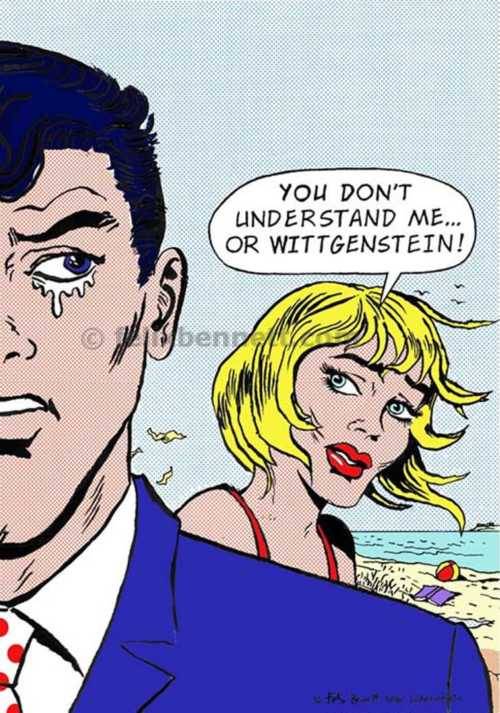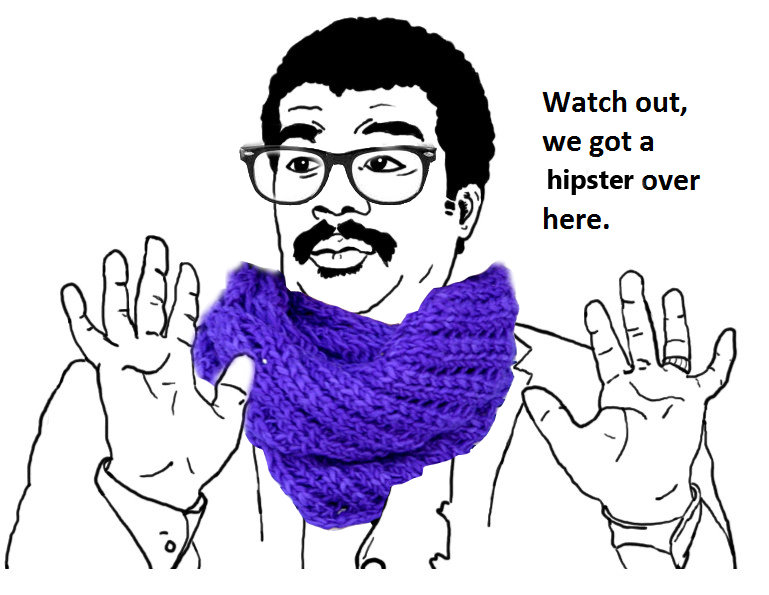This is part two of a series on what it might look like to think of “geek” as a mode in which scholarly work can be done, and in particular a mode that anthropologists might benefit from adopting as what Alex Posecznick calls a “theatrical costume” in his series on anthropologists as scholarly hipsters which prompted my own reflections. In Part 1 I skectched out a working definition of “geek” vs. “hipster.” In this second installment I think about how that applies to the way we relate to our subject matter.
“Firstly, a further removed, more analytical, stance is needed. The applicant needs to go beyond his own fascination with ‘Dungeons and Dragons’”
–Anonymous grant reviewer
I open with the quotation above, not in an attempt to garner sympathy for how those grant agencies “just don’t get it,” or to complain about how I didn’t get funding for my research, but because it has played a significant role in shaping my own stance towards my research.
I make no boasts about having mad grant writing skills, and in the context of my application the reviewer was at least partially justified; I do sometimes have a hard time figuring out how to pitch my research to other anthropologists. So, anonymous reviewer, the response that follows is not to you but to a fan-fiction version of you that I have constructed to position myself against.
See, the thing is, I don’t want to get over my fascination with Dungeons & Dragons, and I don’t want to hide that enthusiasm in my research. Historically there have been a lot of reasons that anthropologists have only allowed themselves to geek out in private: objective detachment, professional respectability, and the need to avoid exoticization are just a few of these. And it’s not that these are pointless goals. But as Michael Taussig pointed out, this is a tension that goes all the way back to Malinowski, who geeked out about color both in his diary (“through the dark blue or sapphire smoke the hillside changes color like a black opal under the glint of its polished surface”) and his fan letter to Frazer (“Through the study of your works I have come to realize the paramount importance of vividness and colour in descriptions of native life”). Yet the Malinowski we remember is the man who “exchanged the magic of the diary for that of the islanders so that he can be nonmagical,” as Taussig says, adding that “something like magic…has been replaced by magic as an ethnographic category, magic being something that they do and that he records.” (91) Malinowski the geek replaced by Malinowski the detached scientist, the hipster who declares that magic is “so over.”
So what’s the problem? Isn’t it worth it, isn’t it necessary for us to rein in that enthusiasm, to tuck it away and channel it so that our work is accurate and doesn’t create harmful caricatures of the people we’re talking about? Well, maybe, and I’ll talk a little about my thoughts on that in the final post in the series. But sometimes I think that we’re so afraid that we forget to be excited. A friend of mine just passed her proposal defense for PhD candidacy, and on her way out a colleague said, “Man, now you actually have to do it,” as if under the assumption that getting to learn about people was a burden rather than something to go running down the hall screaming about. One of the recurring questions in anthropology is “why doesn’t anyone listen to us?” I think part of the answer might be that we’re leaning against the wall with our arms crossed muttering about how Jared Diamond thinks he’s so cool out there on the dance floor. If Neil Degrasse Tyson talked about stars the way that many anthropologists talk about people he would spend the entirety of every episode of Cosmos bitterly complaining about how They Might Be Giants was perpetuating the myth that the sun is a mass of incandescent gas instead of the plasma it really is. Instead, he’s known for getting excited about the subject matter, for geeking out about it, and that kind of enthusiasm is contagious.
Writing in the wake of the critical turn in anthropology, Geertz described the problem well:
Half-convinced writers trying to half-convince readers of their (the writers’) half-convictions would not on the face of it seem an especially favorable situation for the production of works of very much power, ones that could, whatever their failings, do what those of Levi-Strauss, Evans-Pritchard, Malinowski, and Benedict clearly did: enlarge the sense of how life can go. All that is needed is comparable art. (p. 139)
So we need a comparable art to a form of writing that is based on a given reality, but which the authors know isn’t actually a canonical, one-hundred-percent accurate, presentation of that reality, and which readers are supposed to have fun with pretending to believe but also take with a grain of salt? Well, Cliff, as it turns out, that’s a pretty good description of a traditional geek art form, fan fiction. So next time I’d like to talk about where thinking about ethnography as a kind of fan fiction might get us with things. And don’t worry, I won’t just be rehashing Henry Jenkins on textual poaching. That’s so over.
Filed under: Anthropology, Anthropology of geek culture Tagged: Academia, anthropology, geek, hipster, malinowski, neil degrasse-tyson, portlandia, postaweek, Savage Minds, taussig



